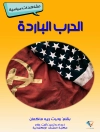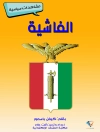Theaetetus Plato – Perception, memory, truth, and knowledge all play major roles in this dialogue. What is remarkable about Platos treatment of those ideas is how contemporary are both the questions and the answers he puts in the mouths of his characters. Socrates is adamant in asserting that he does not know the answers but that his function is simply to help formulate and critically examine the doctrines presented by others. While he was still alive, the great sophist Protagoras was a friend of Theodorus who has subsequently given up abstract philosophical inquiry and now teaches mathematics, astronomy, and logic to young people such as Theaetetus, the most gifted student he has ever encountered. Socrates examines young Theaetetus to determine whether or not what he has learned from Theodorus provides wisdom and truth. The analogies and metaphors that emerge during their conversation foreshadow the theories of mind favored by contemporary cognitive scientists, but Platos dialogue also raises serious doubts about the cogency of those explanations.
关于作者
Plato is a Classical Greek philosopher, mathematician, student of Socrates, writer of philosophical dialogues, and founder of the Academy in Athens, the first institution of higher learning in the Western world. Along with his mentor, Socrates, and his student, Aristotle, Plato helped to lay the foundations of Western philosophy and science.Plato is one of the most important Western philosophers, exerting influence on virtually every figure in philosophy after him. His dialogue The Republic is known as the first comprehensive work on political philosophy. Plato also contributed foundationally to ethics, metaphysics, and epistemology. His student, Aristotle, is also an extremely influential philosopher and the tutor of Alexander the Great of Macedonia












